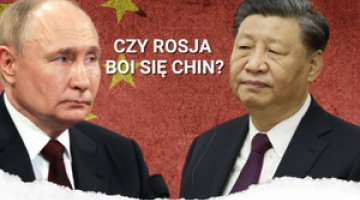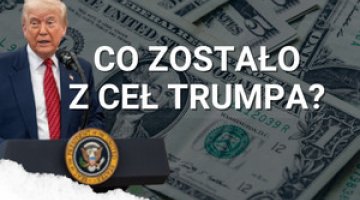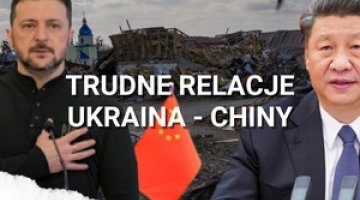China’s propaganda offensive in the face of the COVID-19 epidemic
On 10th March, the secretary general of the Communist Party of China (CPC) and the Chairman of the People’s Republic of China, Xi Jinping, visited the city of Wuhan, the capital of the Hubei Province where the first cases of COVID-19 were recorded and which was hit the hardest by it. This was Xi Jinping’s first visit to Wuhan since the onset of the disease. The visit was set to signal China’s entry into the final stage of the fight with the epidemic and to encourage the country to return to normal economic activity. It was accompanied by intensified propaganda operations in China and abroad.
Xi’s visit to Wuhan went according to plan, which is important given the incidents which took place on 6th March in one of the city’s districts during the visit of Sun Chunlan, a member of the Political Bureau of the CPC Central Committee and the deputy prime minister, who is in charge of combatting the epidemic in Hubei. Her visit was disrupted by the inhabitants of Wuhan shouting accusations that the local government was inflating food prices, about a lack of care and the misrepresentation of reality in the media coverage. On 14th March, the first large street protest in China since the outbreak of the epidemic was held in the city of Dongguan in the Guangdong Province. The protesters demanded the annulment of the payment of rents for February and March and for rents for April-June to be cut by half.
Up to 15th March 80,860 cases of COVID-19 infection have been officially reported in China and 3,213 have died. This includes 67,798 cases and 3,099 deaths in Hubei. During the last 24 hours, 16 new cases and 14 deaths were reported in the entire country, with 4 cases of infection and 14 deaths in the Hubei Province.
Commentary
- Irrespective of the doubts which have appeared in the world’s media regarding the Chinese government’s ability to effectively monitor COVID-19 cases, everything indicates that China has moved past the peak of the epidemic. Despite this, the government in Beijing is faced with a legitimacy crisis which is difficult to notice from abroad. Even though the security services did not allow protests in Wuhan during Xi’s visit to occur, amateur recordings of the protests which happened during Sun’s inspection were not stopped from circulating. This approach enables the Chinese government to play the role of the ultimate arbiter to whom individuals who have been wronged by local governments may turn. The scale of the discontent is however shown by the sheer fact that these incidents did take place. The Chinese government appears to have been taken by surprise by the protests in Dongguan because it had assumed that the epidemic would still prevent people from taking to the streets. Despite the fact that particular sectors of China’s economy (outside Hubei) can now resume their activity, the development of the epidemic in the world has caused China to move from a supply crisis to a demand crisis. The former depended to a certain extent on the actions of the Chinese government, but the latter is beyond its control. As a result of the measures undertaken to contain the epidemic and the limitations of orders from abroad, China is confronted with a serious economic crisis – for the first time in the more than 70 year history of the People’s Republic of China, in January and February the government admitted that all sectors of the economy reported a decline. With a decrease in the number of coronavirus infections and the country’s deteriorating economic situation, the government is expecting further social protests on economic grounds, which will lead to the legitimacy of the CPC being challenged. This is causing the Chinese government to put more effort into regaining control over the channels of information.
- The Internet remains the main outlet for expressing social discontent and for this reason the Chinese government has developed a model which facilitates the expression of negative opinions online on condition that they are not personally aimed at the highest-ranking government members and that they do not challenge China’s political system. Bloggers may publish their opinions late in the evening and they are censored only in the morning the following day. Therefore a large section of Chinese Internet users are waiting until late at night to read the comments of the most critical authors. Even though the government deletes particular articles and posts, it is not blocking the social media accounts of critics and has so far tolerated their activity. It seems the government has deemed this to be a safety valve to let out frustration in society. It also lays bare the limitations of internal propaganda which stem from the necessity to cautiously manipulate public opinion in order to avoid provoking widespread discontent. The words of Wang Zhonglin, the present head of the CPC in Wuhan, caused large opposition when, before Xi’s visit to Wuhan, he said that the city’s inhabitants should be educated on how to express their gratitude to the party for its fight against the epidemic. After more than ten hours Wang withdrew his idea of the campaign and instead suggested an action of expressing gratitude to inhabitants of Hubei for their sacrifice. Similarly, the publication which described successes of the government in combatting COVID-19 was fast removed from sale.
- The CPC is also seeking international recognition as support for China’s narrative inside the country since it realises that, despite the censorship and control over the Internet, a section of society – particularly those who are well-educated and politically active – compares the domestic media coverage with foreign media stories. This dependence has been included in the CPC’s propaganda doctrine – ‘power from international discourse’ (guoji huayuquan). According to this doctrine, the mere fact that the media abroad receive the message from the CPC and reproduce it to a certain extent, supports and enhances the country’s narrative. It is due to social media and the state media’s activity in this area as well as actions taken by Chinese diplomats and companies linked to the CPC (e.g. Huawei), that the party has more international communication channels than ever before.
- China’s international prestige as a country which aspires to the position of a major power has been severely affected due to the outbreak of the COVID-19 epidemic; this can also be ascribed to errors committed in the first months of the crisis. With the expansion of the epidemic to the rest of the world and the difficulties experienced by other countries, the strength of the criticism dropped. Thus Xi’s visit to Wuhan, which was heavily promoted in the Chinese and foreign media, was accompanied by a shift in the official narrative, which is set to reverse the negative trend for Beijing both internally and on the international arena. In its media activity, China above all capitalises on the fact that, as the country where the epidemic began, it is ahead of the rest of the world and that it has passed the peak of the epidemic. As early as at the beginning of March, the state-owned press agency Xinhua started promoting the premise that the world should thank China for combatting the coronavirus. At the same time, it began emphasising the problems experienced by other countries linked to the COVID-19 containment. Against this backdrop China was supposed to appear as an orderly, secure and well-governed country. A similar narrative was developed for international public opinion. It was however supplemented with two elements: (1) China is providing public goods in the form of aid; (2) the US has abandoned the role of global leader and is not ensuring international stability and security. The decision-makers in Beijing are aware of the limitations of international media coverage due to the fact that they cannot control the information environment abroad in the same manner they control it in China. Nevertheless, as is the case with internal propaganda, the fact that public opinion doubts the official narrative does not prevent its recipients from believing that other countries are sinking more deeply into chaos and are ineffectively governed in the crisis situation.
- Apart from its internal objectives, there is also an international agenda linked to the CPC’s narrative and it is being well received among certain sectors of global public opinion. In Italy, China’s material aid (in fact Beijing sold medical equipment to Italy and donations in kind were only a small part of the provided materials) and a team of specialists sent there have been very well received. Similar operations may be expected in other regions of southern Europe if the situation becomes critical there. In the immediate future it may be expected that these media operations will be continued. The Chinese apparatus is likely to continue promoting three topics in particular: (1) the success in combatting the coronavirus and China’s sacrifice in order to ‘buy time’ for the rest of the world to get prepared (which the West squandered); (2) China’s readiness for international co-operation, in particular good collaboration with the WHO and experience-sharing with regard to fighting the epidemic, with a focus on the medical assistance provided, while ignoring the successes of other countries such as South Korea or Taiwan; (3) promotion of China’s progressive character, including by underlining the role and sacrifice of female medical staff, which is meant to be ascribed to the successful emancipation of women in China. The novelty here is the return to the progressive elements of China’s propaganda, which were more accentuated in the times of Mao Zedong. Another change is that the topic of the lack of help from the EU and other partners for Italy has been borrowed from Russian media outlets. The CPC is beginning to experiment with other forms of disinformation which have so far been used by the Russian mass media. The ultimate goal is to portray China as the global leader in the fight against the pandemic, one which, thanks to its unique political model, reports successes and helps partners in need while the rest of the superpowers are mired in chaos.





